
Jewels of the Arctic – showcasing the very best of the Arctic!
Katie Harber, our Senior Business Development Manager for the UK, has just returned from an unforgettable Jewels of the Arctic
Svalbard is a Norwegian archipelago in the High Arctic between mainland Norway and the North Pole, also know as Spitsbergen. A destination of a lifetime, our expeditions to Svalbard connect you to the majesty of this Arctic wilderness, where dramatic fjords, rugged mountain ranges and a fossil-rich polar desert await.
Overhead, puffins, guillemots and other native Svalbard avian circle, commanding your attention, while the scree slopes house the island’s largest little auk colony. Witness sea walruses puncturing the ice, beluga whales breaching or a fluffy Arctic fox. Svalbard is the kingdom of the polar bear – witness one of these majestic, elusive creatures if you’re lucky. All leave a lasting impression.
The polar summer spans from May to September, where the Midnight Sun’s beautiful colours and contrasts adds an extra dimension to Svalbard’s glaciers, majestic mountains and Arctic tundra. This is the best time to enjoy outside exploration and take in this frozen land.
Svalbard is large and diverse, showcasing nature’s surprisingly rich and extremely varied landscapes. Life in Longyearbyen, Svalbard’s capital city, may be perceived as harsh, but for those fortunate to live here, it’s hard to imagine living anywhere else. Its inhabitants strive to live as one with nature, working in harmony to uphold their unique way of life throughout the enormous seasonal variations in temperature, light and darkness.
Home > Destinations > Weddell Sea Cruises & Expeditions
Visit part of Antarctica that few get to experience on a true expedition that pushes below the Antarctic Circle to the eastern side of the Antarctic Peninsula. Embrace the spirit of exploration as you attempt to forge a path through the ice-choked Weddell Sea.
Retrace the paths of early explorers including Shackleton, whose expedition ship, the Endurance, was famously trapped and destroyed in the ice. Huge tabular icebergs announce your approach and threaten to block your passage. Wait with bated breath as nature dictates your itinerary.
Be rewarded with unforgettable encounters with wildlife that breeds and birth on sea ice, and sightings of whales that are drawn to the icy waters. Zodiac-cruise on seas that have been declared by scientists as the clearest on Earth, around icebergs the size of skyscrapers to remote beaches to visit penguin rookeries and historic huts – all the while being careful not to step on ancient fossils.

Wild Antarctica featuring the Weddell Sea: In Partnership with New Scientist Discovery Tours
Polar Expedition
DURATION
13 Days
FROM
USD $17,756.00
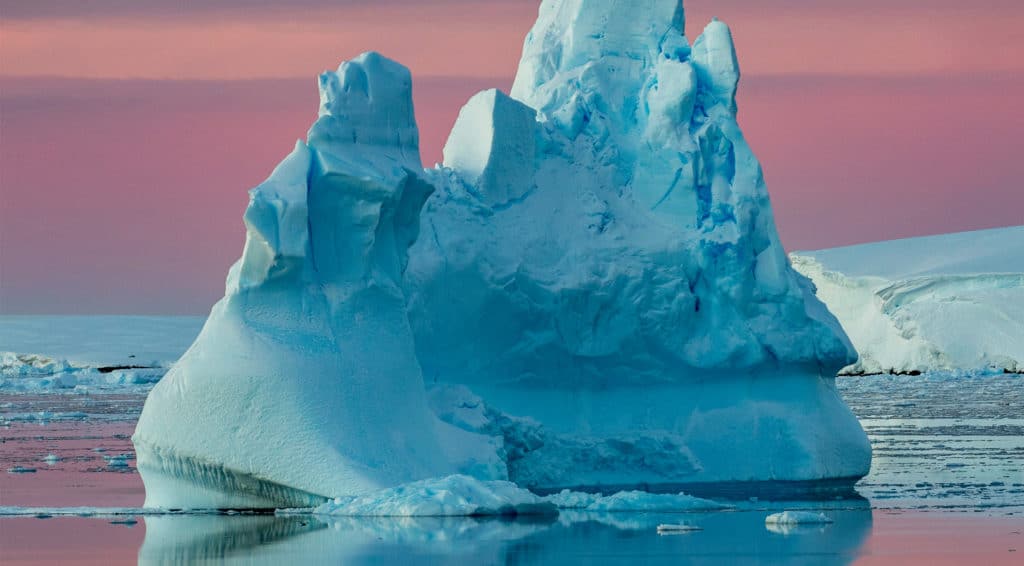
The Weddell Sea region is renowned for vast amounts of ice – sea ice, pack ice and huge icebergs that are formed by huge floating sheets of thick ice that border the Weddell Sea. Even icebreakers have difficulty getting deep into the Weddell Sea due to at-times severe ice conditions. However, our purpose-built ships were built for these conditions, and our Weddell Sea cruises Expedition Teams are skilled at navigating you past the ice shelves. For adventurous expeditioners, a visit to the area is incredibly rewarding, not least for its historical associations.
In 1902, explorer Otto Nordenskjöld and his Swedish Antarctic expedition was forced to spend two winters in the Weddell Sea, and the main expedition hut built on Snow Hill Island still stands. The area is also central to Ernest Shackleton’s story. It was in the Weddell Sea that Shackleton’s Ship the Endurance was abandoned by Shackleton and his crew, after it became trapped in the ice. In addition to marvelling at ice-scapes, the area is rich in geology and palaeontology.
A considerable aspect of a voyage to the Weddell Sea is the thrill of not knowing if the ice will allow us to enter its frozen realm. The Weddell Gyre pushes enormous amounts of ice from the Filchner-Ronne Ice Shelf up towards the area near Antarctic Sound, sometimes blocking the entrance to the Weddell Sea. If you are fortunate enough to access this unique Antarctic region, a visit to has numerous rewards.
The Weddell Sea is a region of the Southern Ocean that is known for its unique and pristine waters. The sea is characterised by extremely low levels of pollutants, high levels of dissolved oxygen and extremely cold temperatures, with the surface water often hovering just above freezing. This cold water is able to hold a significant amount of dissolved oxygen, which supports a diverse and thriving ecosystem of marine life. The Weddell Sea is home to diverse wildlife, including Antarctic krill, emperor penguins and Weddell seals. The sea is also an important breeding ground for many species of seabirds, which rely on the rich waters to support their young. Despite its remote and harsh weather conditions, the Weddell Sea is a vital part of the global ocean ecosystem, playing a key role in regulating the Earth’s climate and supporting life both in the sea and on land.
The abundant ice attracts seals such as crabeater, leopard and Weddell seals, which all breed and birth on the thick layer of sea ice. On Weddell Sea cruises, keep a look out for orca, humpback and minke whales who inhabit the region. While ashore, you can scour for ancient fossils of gastropods, large clams and spiral-shaped ammonites.
The Weddell Sea boasts a large Adélie penguin colony just outside of the Antarctic Sound, some of which breed on the rocky slopes of a small volcanic island, where a large colony of Antarctic blue-eyed shags jostle for space with nest-building Wilson’s storm petrels.
While Snow Island is the northernmost breeding colony of the Emperor Penguin, the chances of seeing them in the Weddell Sea are slim. Sadly, they are under threat due to disturbances to food supply and habitat.
Central to the story of where Sir Ernest Shackleton’s ship, the Endurance became trapped in formidable sea ice, the Weddell Sea certainly is high on the list for many polar adventurers. Your knowledgeable Expedition Team will bring their stories to life through lectures and guided commentary as we explore the region.
A group of small islands, including Joinville Island, Dundee Island, and Snow Hill Island, stand off to the east of the Antarctic Peninsula, collectively forming the Antarctic Sound. This remote and beautiful area is considered the gateway to the Weddell Sea, one of the most pristine and unspoiled regions of Antarctica. With a well-deserved reputation as being an iceberg alley, many large tabular bergs escape the Weddell Sea through the Antarctic Sound, often making navigation difficult but the ultimate adventure, and incredibly rewarding if you are successful.
Join a Zodiac cruise as we move safety between gigantic icebergs, and land on remote beaches where ancient fossils can be found. Watch your step and keep a safe distance as fur seals and Weddell seals sleep peacefully on the beaches.
The Svalbard archipelago has nine main islands; some of these islands are connected by sea ice and expedition cruises are the only safe way to move between them. A lot of these islands are national parks, in fact, Svalbard has seven national parks in total. Find out more about the main islands below.

Svalbard’s largest island is 39,044 square kilometres. Its landscape is dominated by rugged mountains indented by post-card perfect fjords, and more than half of the island is covered in ice year-round. Six national parks protect its delicate environment and diverse fauna, which makes it a favourite for travellers visiting Svalbard. Spitsbergen is the only permanently inhabited part of Svalbard, with Longyearbyen the biggest settlement and administrative centre of Svalbard.
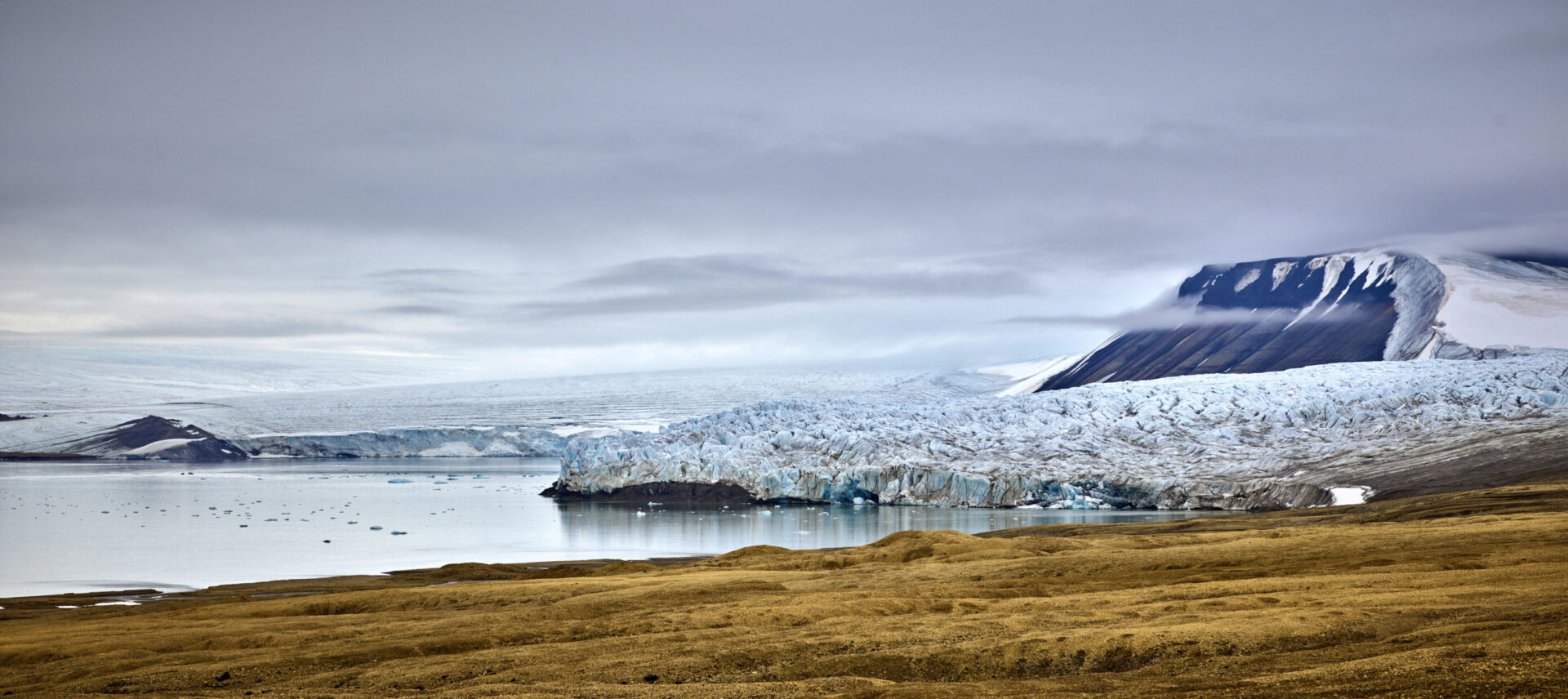
The second largest island in the Svalbard archipelago is completely uninhabited. Situated entirely within the Nordaust-Svalbard Nature Reserve, it is made up of sizable ice caps and tundra.
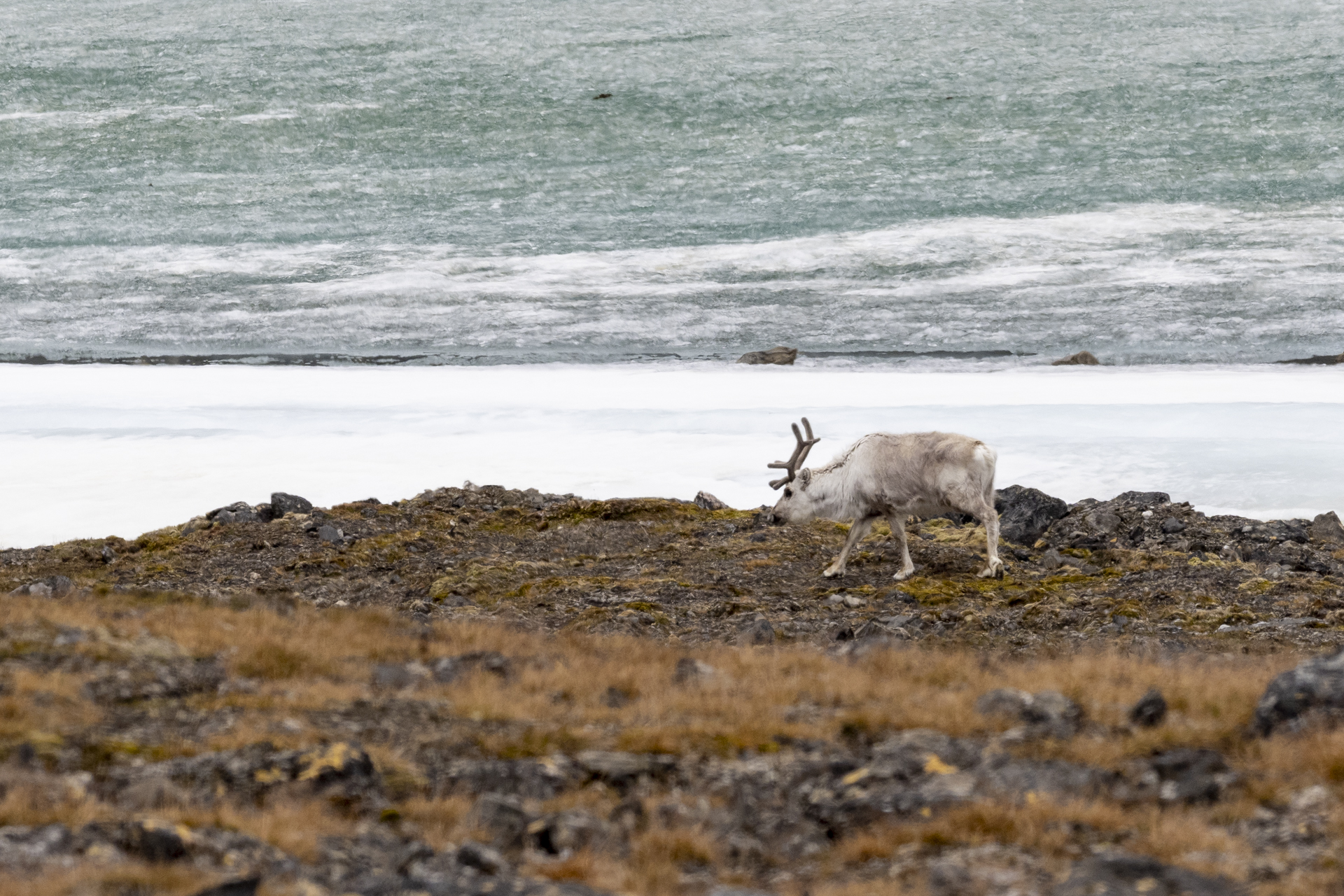
Edgeøya is a Norwegian island situated in the southeast of the Svalbard archipelago. With an area of 5,073 square kilometres, it is the third-largest island in this archipelago. It forms part of the Søraust-Svalbard Nature Reserve and is home to polar bears and reindeer.
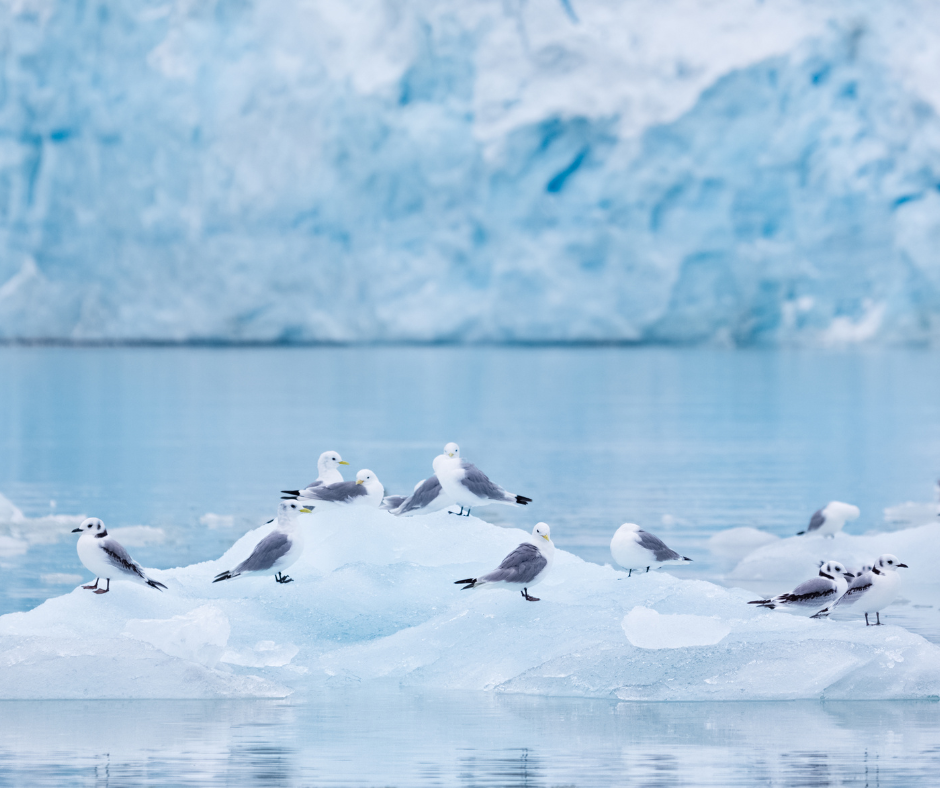
Named after the Dutch explorer Willem Barentsz, almost half of this island in the Søraust-Svalbard Nature Reserve is glaciated. While the island has no permanent human inhabitants, it is a favourite of polar bears and seabirds, especially kittiwakes.
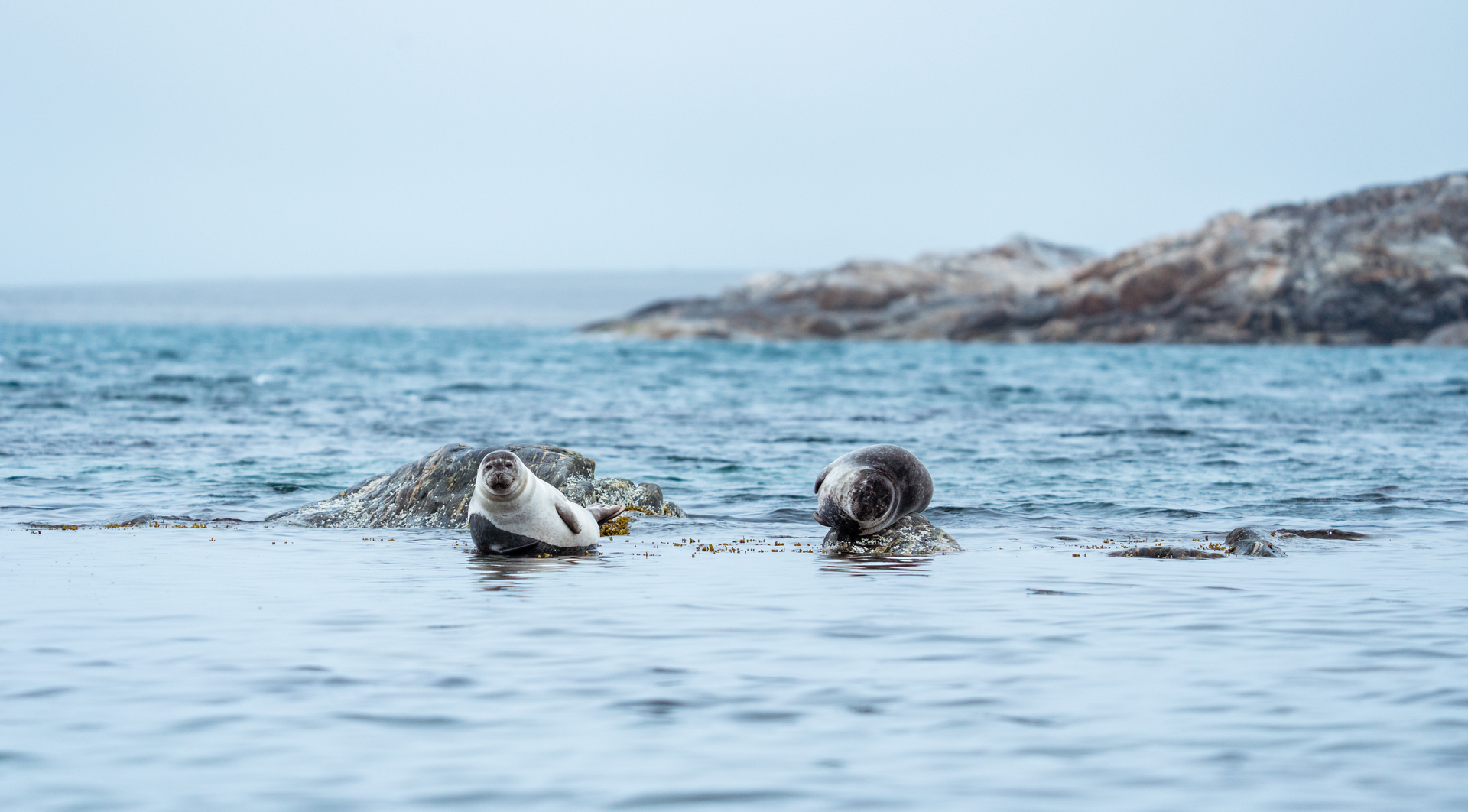
This long island on Svalbard’s west coast and its surrounding seas constitutes Forlandet National Park. It boasts jagged peaks and wild glaciers that remind one of the Antarctic peninsula, alongside vast green plains and polar deserts. The harbour seal is commonly found here.
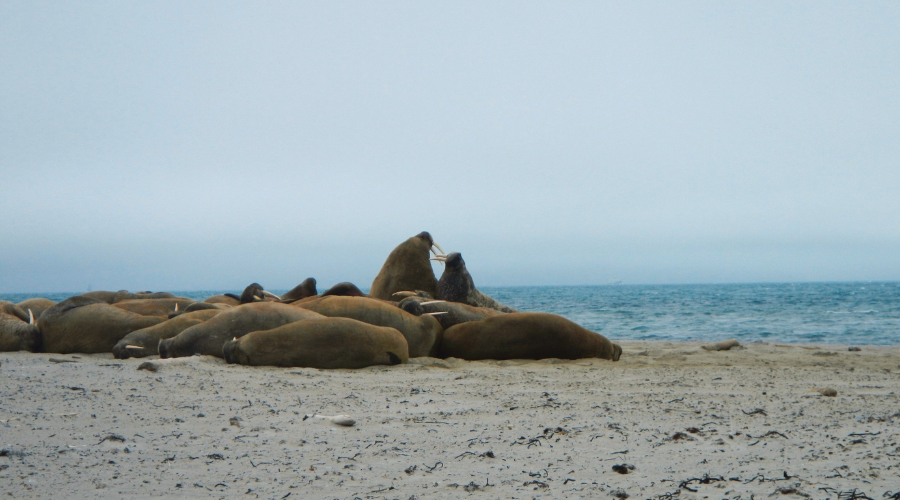
When ice conditions allow, adventure seekers can discover Svalbard’s easternmost island, where polar bears roam and walrus swim. This island is the resting place of Andrée’s Arctic balloon expedition of 1897, which was one of the great mysteries of the Arctic for decades.
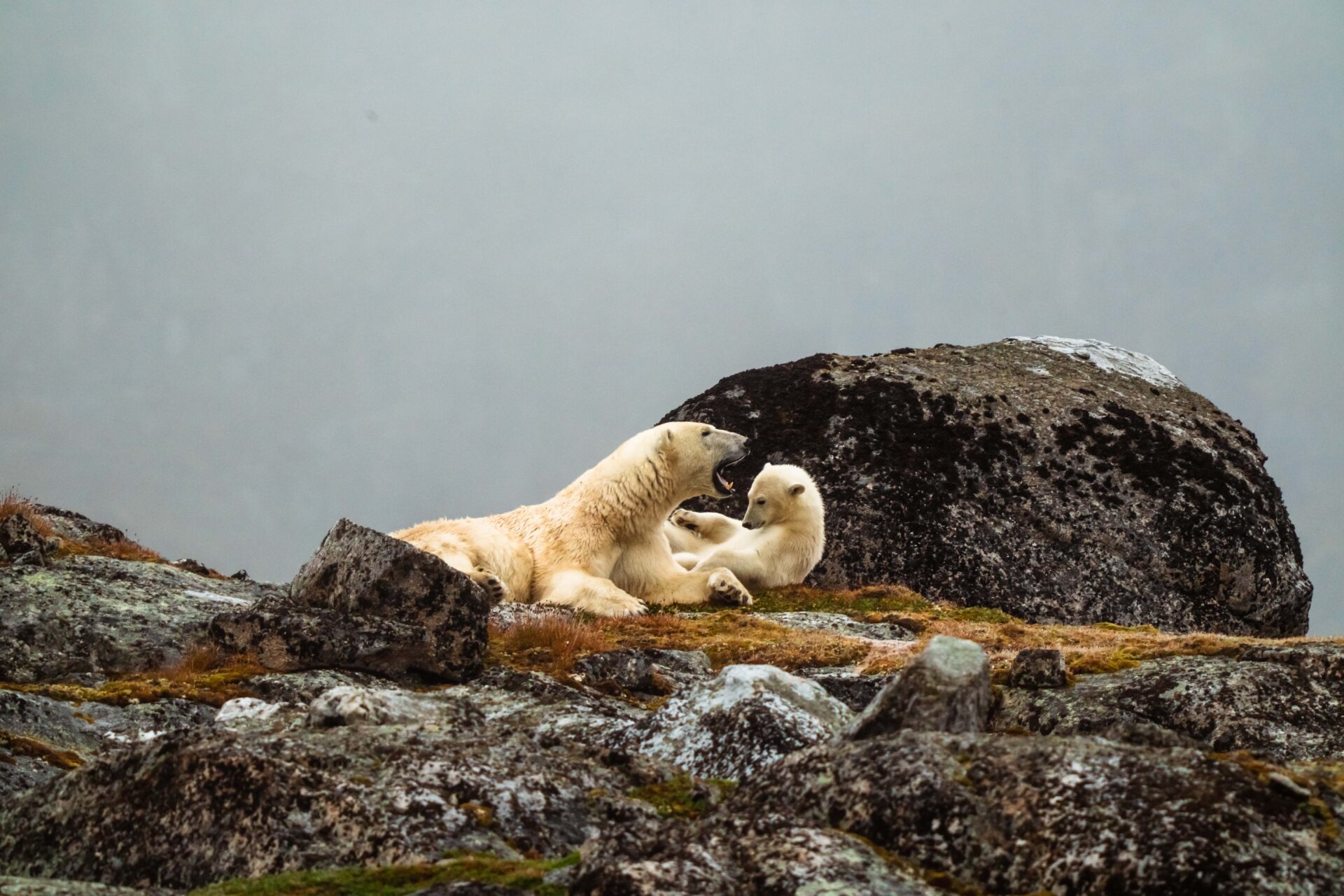
This small island group is part of the Nordaust-Svalbard Nature Reserve and boasts the largest concentration of polar bears in Svalbard. Because of this, there is a ban on traffic to the island, with ships and aircraft not being able to come within 500 metres of the area.
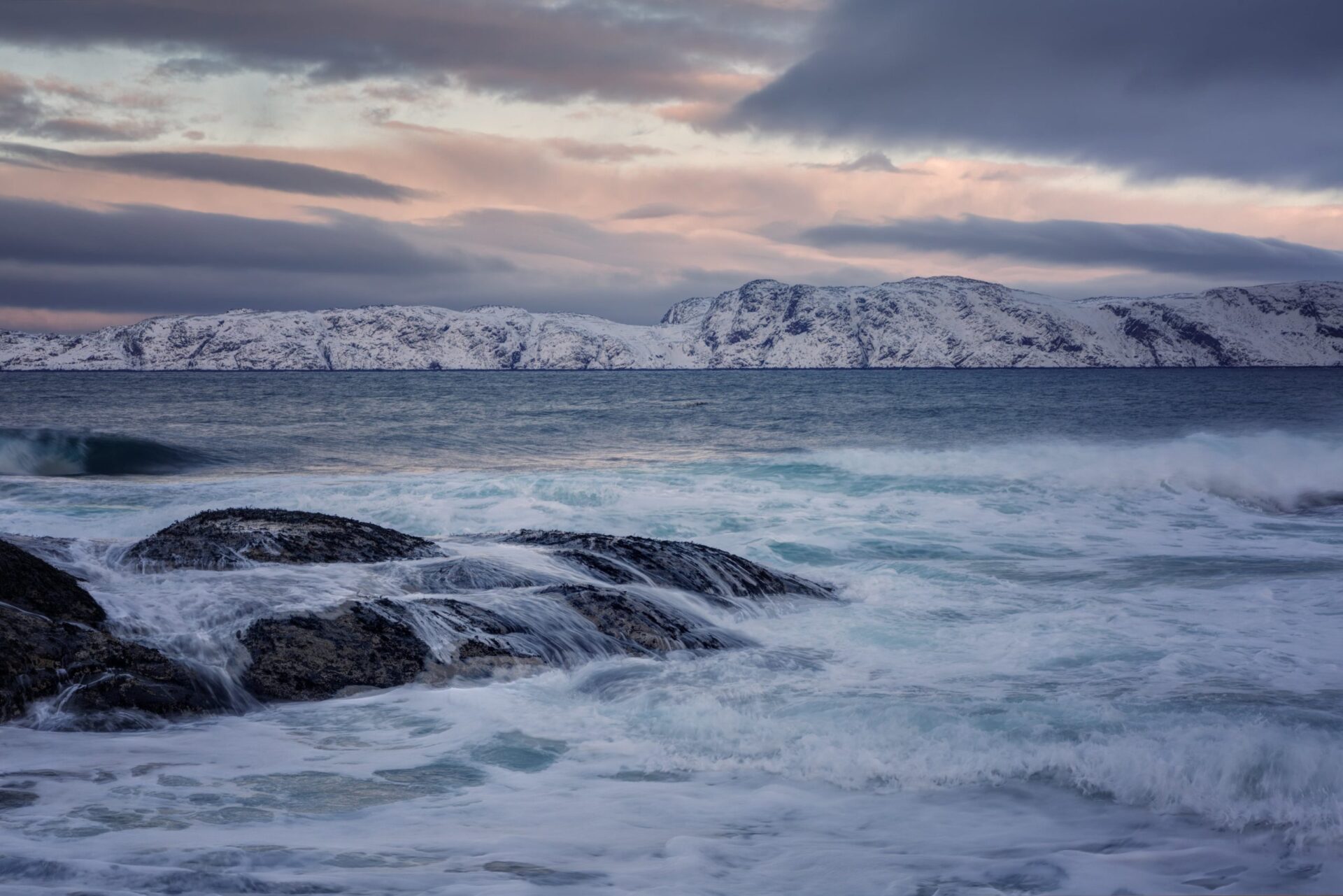
The southernmost island of Svalbard is rarely visited because it can be challenging to access, with no protected bays, rough weather, strong wind and thick fog. While its history revolves around hunting, it is now an important scientific research site and the whole island is a nature reserve with restricted access.
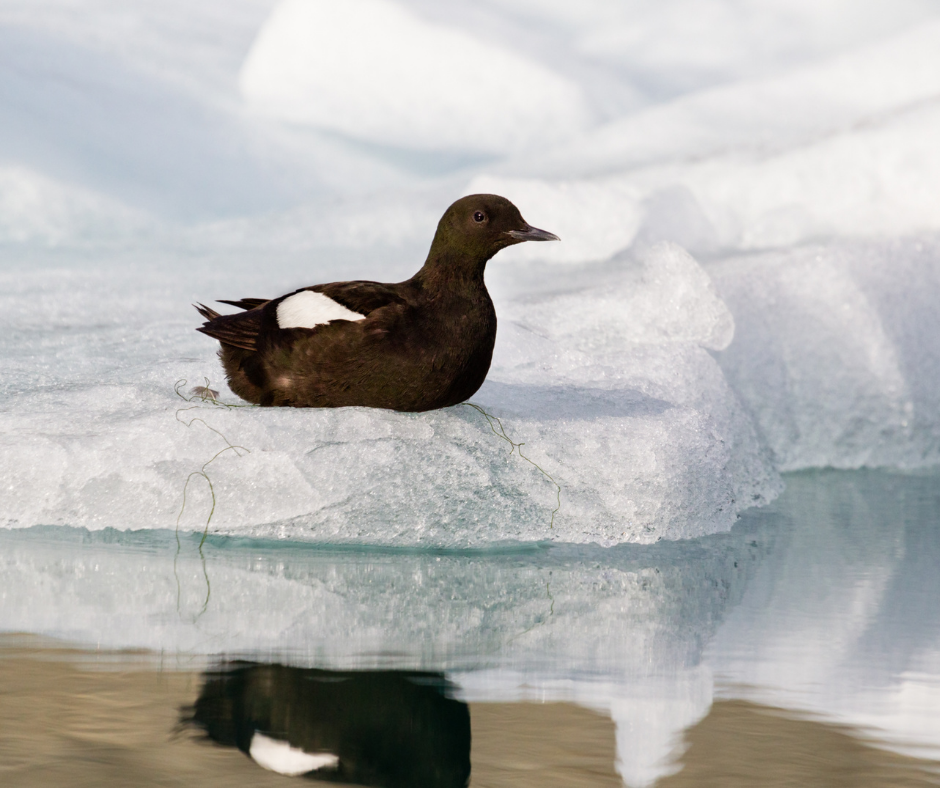
This small, remote island in the far southeast is part of the Southeast Svalbard Nature Reserve. Visiting can be a lucky dip because of heavy ice, fog, rough waters and unprotected beaches. The island has been identified as an Important Bird Area (IBA), supporting breeding colonies of thick-billed guillemots, black guillemots and black-legged kittiwakes.
Embark on an unforgettable journey to the Weddell Sea with Aurora Expeditions. Our Expedition Team will lead you on excursions to explore the unspoiled beauty of the Antarctic wilderness, fully included in the cost of your expedition. For the more adventurous, we offer optional activities* such as sea kayaking and scuba diving to get you closer to the action. Our Weddell Sea expeditions provide a comfortable yet thrilling experience, leaving you with unforgettable memories of your time in one of the most remote corners of the planet.
Bird Watching
Photography
Polar plunge
Trips ashore
Walking
Whale and mammal spotting
Zodiac cruises
Lecture on wildlife, our environment, history and destinations
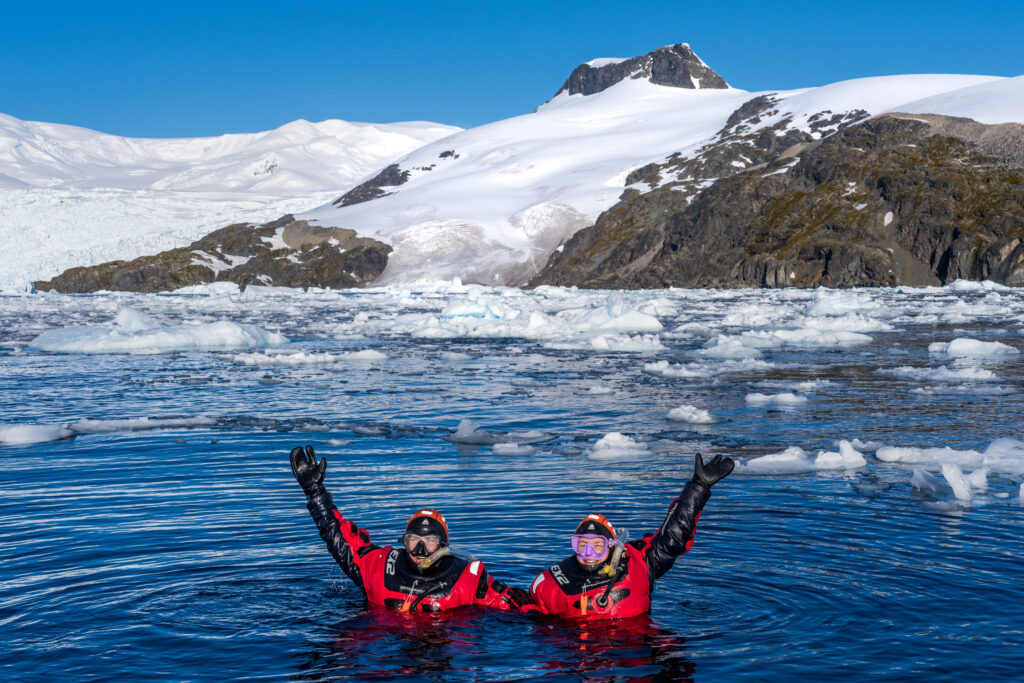
Witness wildlife and scenery unlike any other place while snorkelling in Antarctica. Aurora Expeditions launched our snorkelling holidays…
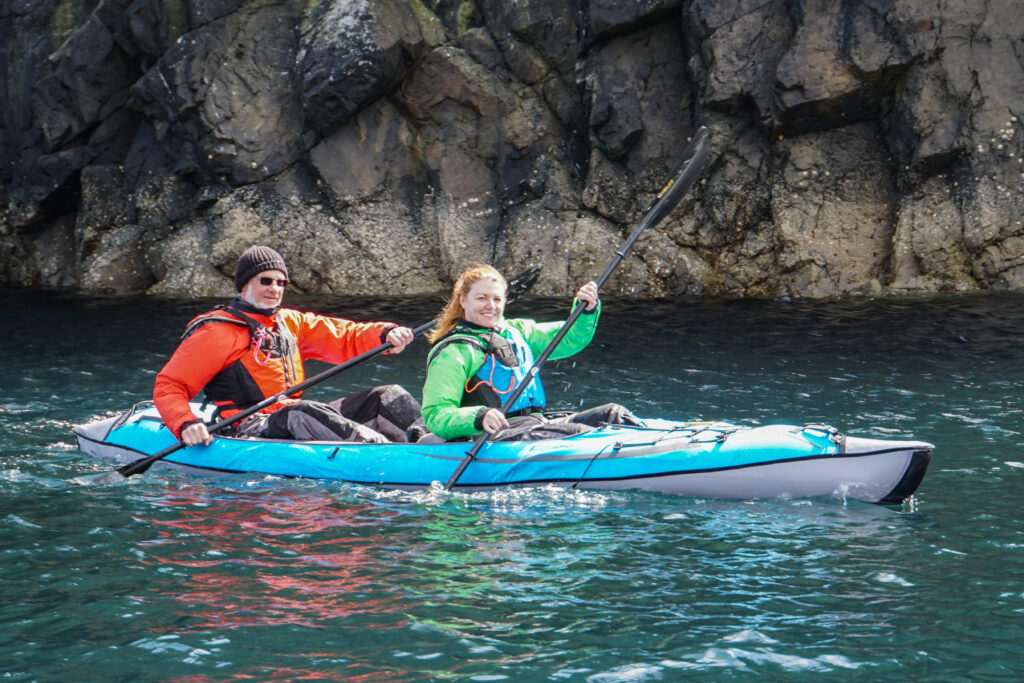
Paddling holidays visiting wild regions on an expedition to Antarctica, Costa Rica and Western Scotland are thrilling in our inflatable kayaks…
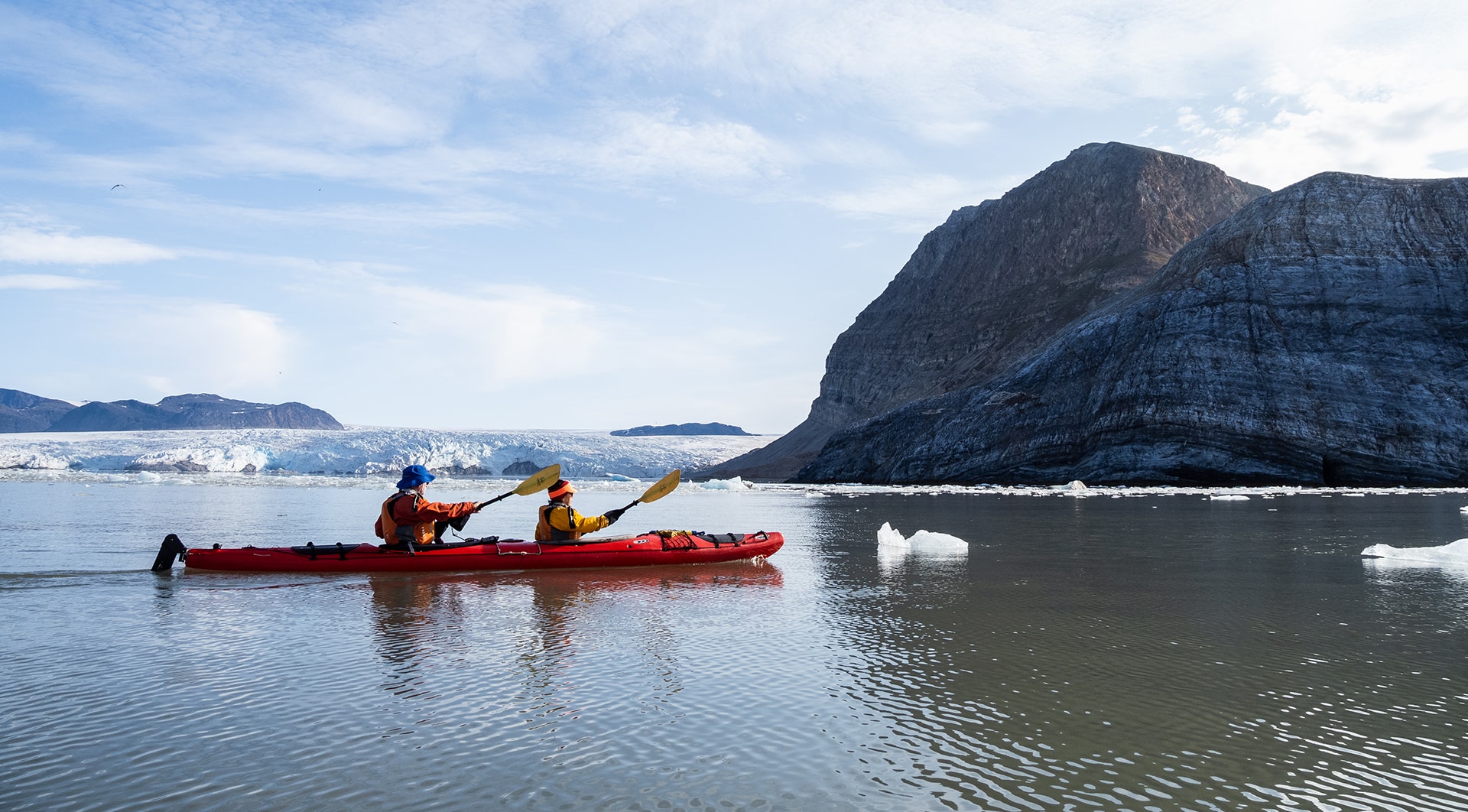
Sea Kayaking is one of the most exhilarating ways to experience Antarctica, the Arctic and beyond. Sea kayaking holidays in the…
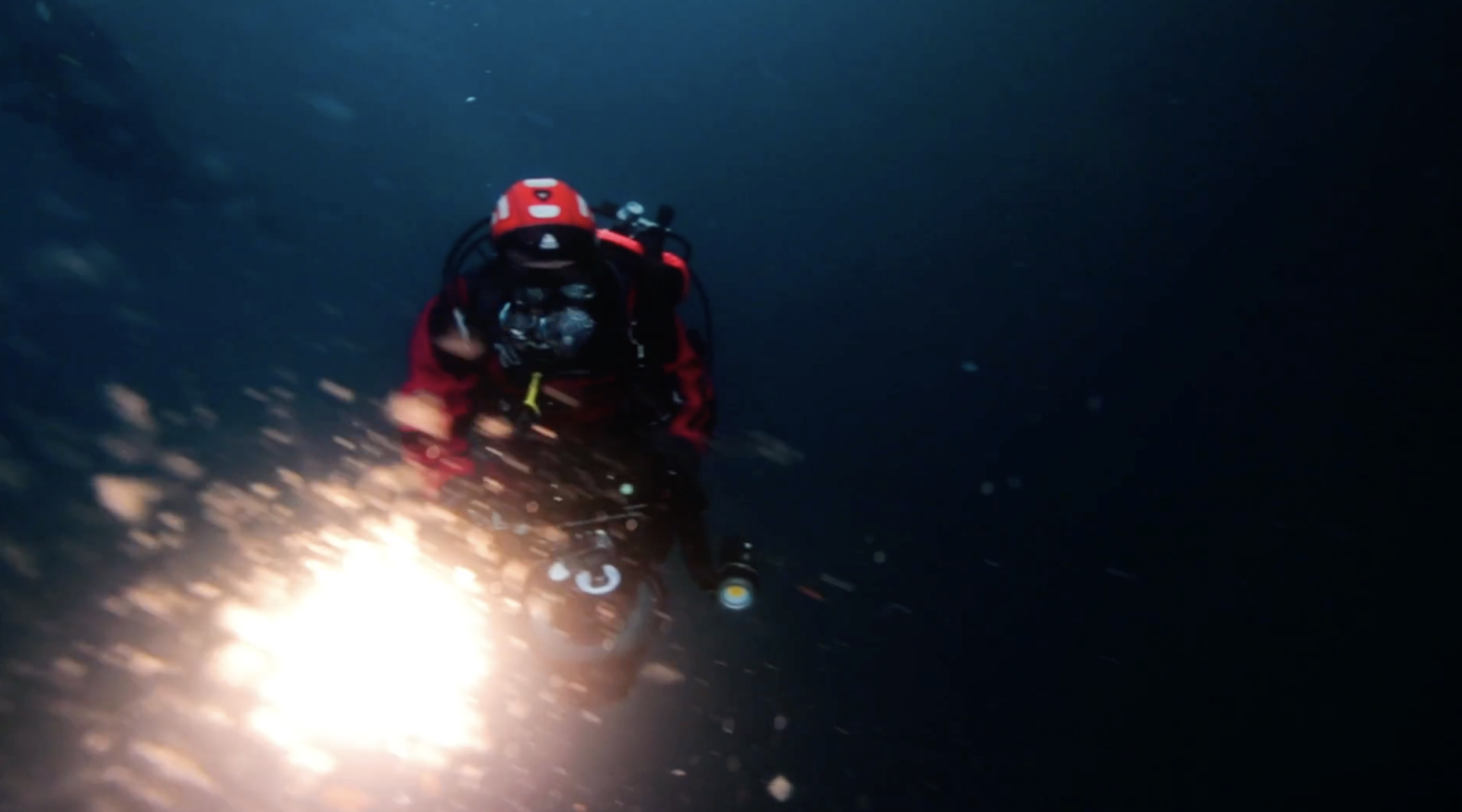
Explore mysterious underwater worlds in Antarctica, the Arctic and beyond. Aurora Expeditions operated scuba diving holidays…
*Optional add-on activities are available on select voyages. They are listed on each itinerary page and additional fees apply.
The Weddell Sea has an average depth of 500 meters (1,640 feet); however, it can reach a maximum depth of up to 5,148 meters (16,890 feet) in some areas. Its deep, icy waters contribute to its unique ecosystem and fascinating geography
The cost of a cruise to the Weddell Sea can vary depending on factors such as the duration of the expedition, the type of stateroom chosen, and the specific itinerary.
Once you choose which Weddell Sea expedition you want to embark on, you will have options for various stateroom types and additional activities. Explore our offerings to find your dream Weddell Sea expedition that suits your needs and budget.
Read about what is included in your voyage here.
When preparing for a Weddell Sea cruise, it’s essential to pack appropriate gear.
Shipboard clothing is informal and casual. Jeans, jumpers, and long-sleeved shirts are ideal for indoors in the polar regions; however, be sure to keep your jacket close for unexpected wildlife sightings!
Some people like to take a nicer outfit for the captain’s welcome and farewell drinks, but formal clothing is not necessary.
Each passenger aboard our Antarctic expeditions will receive an expedition jacket when they board the ship. However, you’ll need to ensure you pack the correct cold and wet weather gear for your landings such as waterproof trousers, insulated jackets, and thermal layers.
The cold and unpredictable weather requires careful packing, making it essential to consult our suggested packing list for a comprehensive guide.

Katie Harber, our Senior Business Development Manager for the UK, has just returned from an unforgettable Jewels of the Arctic
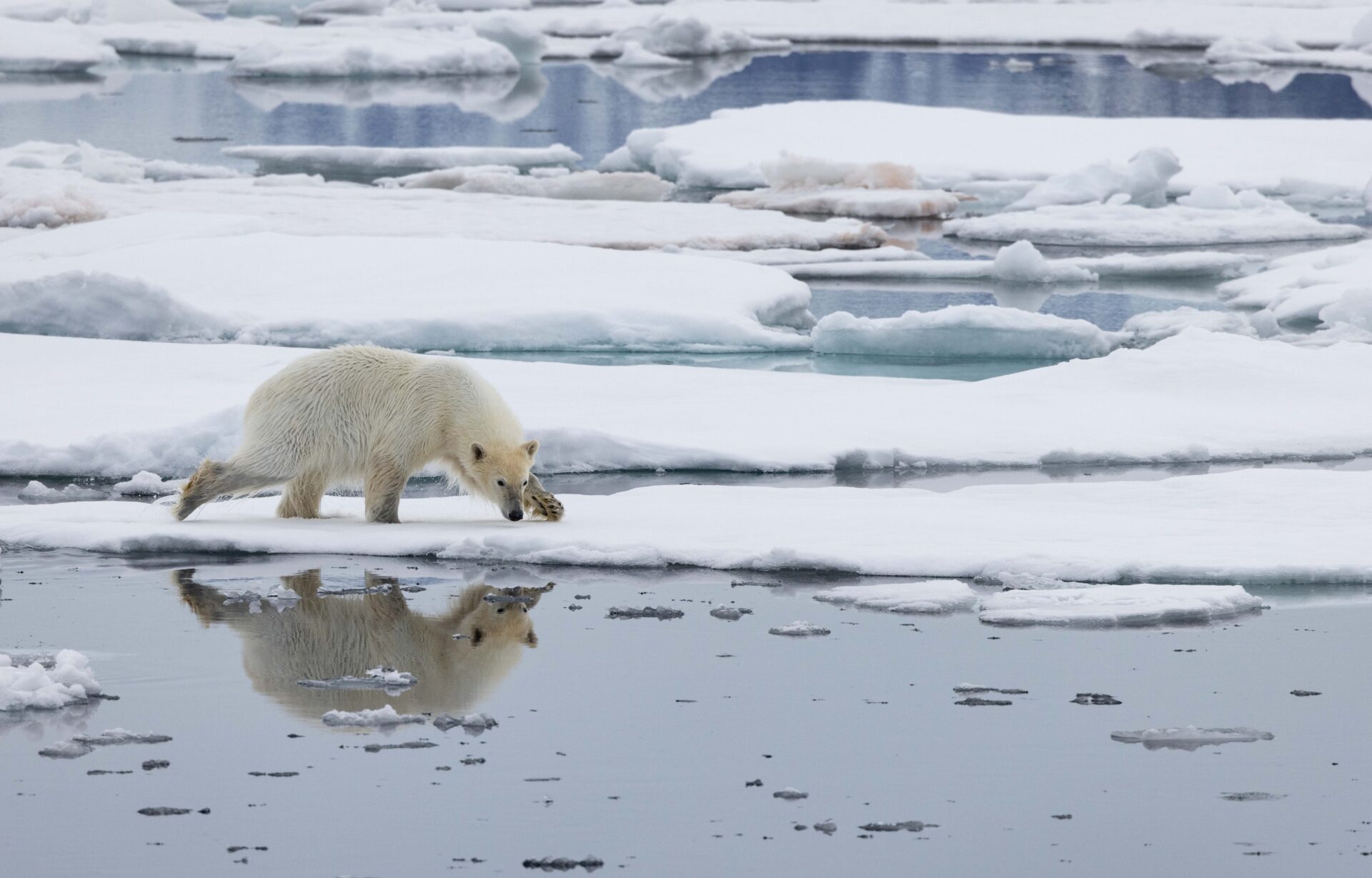
You’ve heard that the Norwegian archipelago of Svalbard is one of the coolest places on Earth (literally), and you’re probably
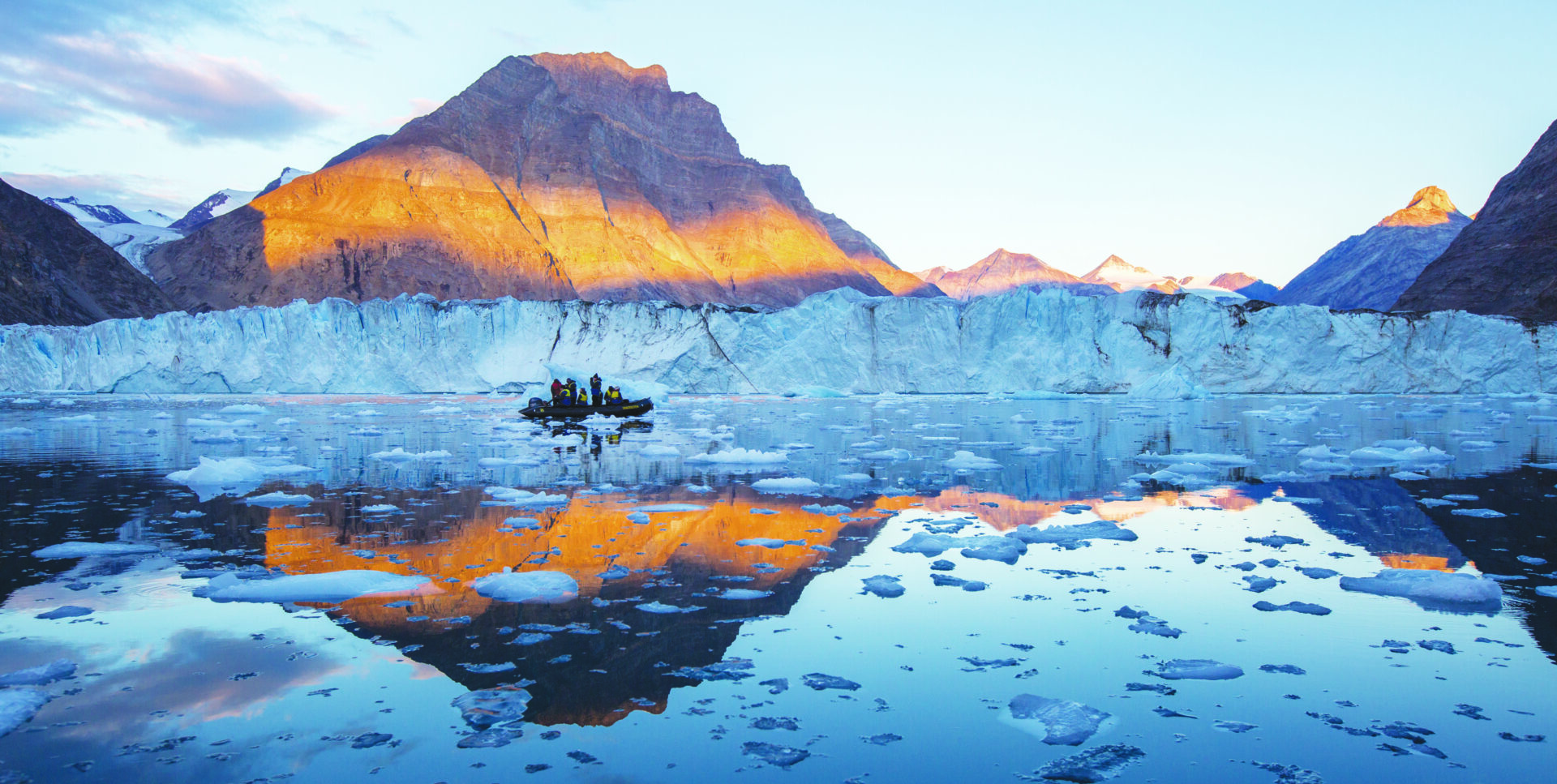
As one of the world’s most extreme and captivating environments, Svalbard is the destination of a lifetime. Located between mainland Norway and
